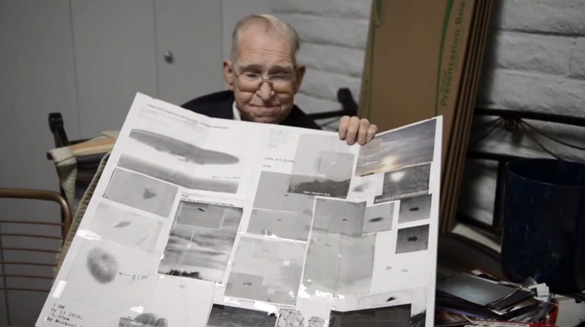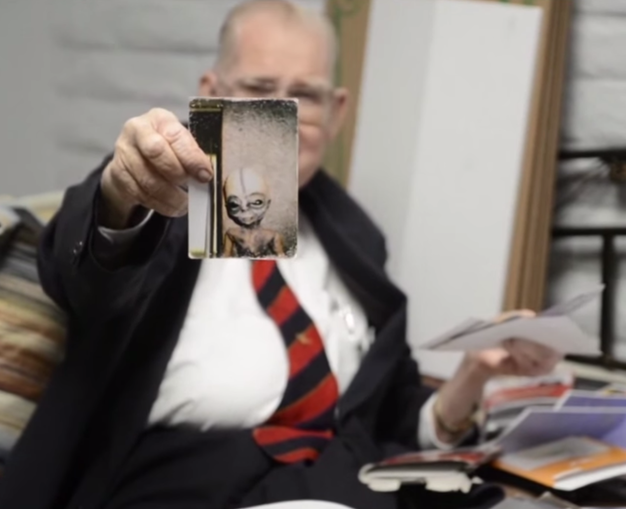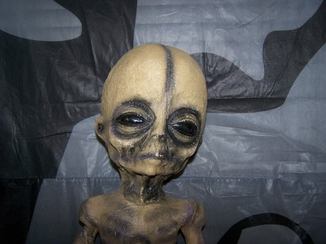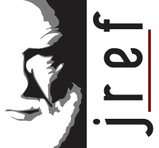Boyd Bushman, "a former Lockheed Martin engineer" spoke with independent aerospace engineer Mark Q. Patterson shortly before his death last August and made some surprising and highly questionable claims. Dr. Stuart Robbins discusses the many reasons to be skeptical of deathbed confessions.
By Stuart J. Robbins
Since this is my first SWIFT post, I wanted to give a brief introduction. I'm a self-termed "astro/geophysicist" with a Ph.D. in geophysics but a background more in astrophysics. Given my background, I tend to focus on pseudoscience and skepticism as applied to astronomy, geology, and physics. One regular activity of mine is as a member of the studio audience of "ATS Live," the premier three-hour live weekly show of the Above Top Secret website (one of the most popular conspiracy websites in the world); I'm the token skeptic.
On last weekend's show (October 25, 2014), one of the topics we discussed was the deathbed confession of "Area 51 scientist," Boyd Bushman. Within a few weeks of his death this past August, Mr. Bushman was recorded in numerous clips making various claims about how he worked on things such as antigravity, UFOs, and other classic pseudoscience claims related to what could be loosely termed, "new physics." [YouTube "Last Interview"]
I think this is an excellent example of why I find the "deathbed confession" phenomenon completely unconvincing, especially as related to paranormal-type claims.
By Stuart J. Robbins
Since this is my first SWIFT post, I wanted to give a brief introduction. I'm a self-termed "astro/geophysicist" with a Ph.D. in geophysics but a background more in astrophysics. Given my background, I tend to focus on pseudoscience and skepticism as applied to astronomy, geology, and physics. One regular activity of mine is as a member of the studio audience of "ATS Live," the premier three-hour live weekly show of the Above Top Secret website (one of the most popular conspiracy websites in the world); I'm the token skeptic.
On last weekend's show (October 25, 2014), one of the topics we discussed was the deathbed confession of "Area 51 scientist," Boyd Bushman. Within a few weeks of his death this past August, Mr. Bushman was recorded in numerous clips making various claims about how he worked on things such as antigravity, UFOs, and other classic pseudoscience claims related to what could be loosely termed, "new physics." [YouTube "Last Interview"]
I think this is an excellent example of why I find the "deathbed confession" phenomenon completely unconvincing, especially as related to paranormal-type claims.
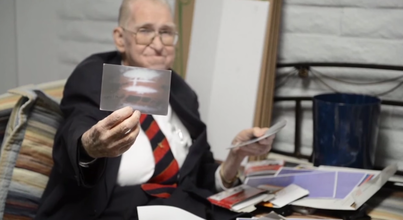
People who want to believe tend to cite two reasons that deathbed confessions should be considered good evidence for their claims. First is the classic argument from authority, especially in the case of Boyd Bushman who's reasonably well known in the UFO community and "was a retired Senior Scientist for Lockheed Martin." He was awarded patents and defense contracts. Sounds impressive.
To be brief, the argument from authority is meaningless with regards of the veracity of the actual information. Claims and information need to stand on their own and be verified regardless of the person who is making it. My favorite example is that Isaac Newton who (by most metrics) founded modern physics - he believed in alchemy.
With this in mind, I don't even need to start on the path of investigating Mr. Bushman's claims of employment and background, which many people have called into question.
The second reason people tend to believe deathbed confessions is, "they have nothing to lose!" After all, the person making the deathbed confession is - barring something miraculous - dying. Being killed by the Men in Black at that point is no longer a threat because they're about to die anyway.
While this certainly makes sense, there are plenty of other reasons why a deathbed confession would actually not be reliable. For one, at least for those who are older and close to death, senility may play a role. It is a normal part of aging, and for the record, Mr. Bushman was 78 when he died. I'm not claiming that senility played a role in this case, I'm merely raising it as a complicating factor of an older person's testimony.
A deathbed confession can also be a way to solidify one's reputation by using the cultural belief in its veracity to double-down on the claim to increase general belief in it.
The thinking could easily be, "People really believe that people are 100% honest on their deathbed, so I'm going to make sure I go out with a 'bang' and make my claims yet again. People who didn't believe me before might this time because they'll think I'm telling the truth 'cause I'm about to die."
However, in addition to explaining why the common reasons to believe deathbed confession testimony are unconvincing, there's a better reason why the testimony is not useful: They're doing it wrong.
Let's say I had a bunch of secrets of exotic physics and decided to do a deathbed confession. Here's what I would say: "I've been working on antigravity and warp field physics for the last 50 years, in secret, with the US government." Then, instead of showing photos of a spaceship or a blurry alien, I would add: "And, here are the equations. Here is a diagram for how you build a device. Here is a working model. Here is exactly how you put everything together."
In other words, it shouldn't matter who I am, what my experience is, or what pretty (or ugly) picture I show. What I need to show is HOW to do it. Just saying something doesn't make it so. I need to give enough information for someone else to verify it and duplicate it. Otherwise, what's the point? To make a spectacle before I die?
That's why I find this whole deathbed confession thing unconvincing and, perhaps more importantly, not useful: We have no more information than we had before. We have no way to verify any of the information claimed. No way to test or duplicate it. At *best*, we have another person claiming this stuff is real, and while he or she may be proven out with the passage of time, their "confession" contributed absolutely nothing to that advancement.
Until then, it's no better than any other pseudoscientific claim.
To be brief, the argument from authority is meaningless with regards of the veracity of the actual information. Claims and information need to stand on their own and be verified regardless of the person who is making it. My favorite example is that Isaac Newton who (by most metrics) founded modern physics - he believed in alchemy.
With this in mind, I don't even need to start on the path of investigating Mr. Bushman's claims of employment and background, which many people have called into question.
The second reason people tend to believe deathbed confessions is, "they have nothing to lose!" After all, the person making the deathbed confession is - barring something miraculous - dying. Being killed by the Men in Black at that point is no longer a threat because they're about to die anyway.
While this certainly makes sense, there are plenty of other reasons why a deathbed confession would actually not be reliable. For one, at least for those who are older and close to death, senility may play a role. It is a normal part of aging, and for the record, Mr. Bushman was 78 when he died. I'm not claiming that senility played a role in this case, I'm merely raising it as a complicating factor of an older person's testimony.
A deathbed confession can also be a way to solidify one's reputation by using the cultural belief in its veracity to double-down on the claim to increase general belief in it.
The thinking could easily be, "People really believe that people are 100% honest on their deathbed, so I'm going to make sure I go out with a 'bang' and make my claims yet again. People who didn't believe me before might this time because they'll think I'm telling the truth 'cause I'm about to die."
However, in addition to explaining why the common reasons to believe deathbed confession testimony are unconvincing, there's a better reason why the testimony is not useful: They're doing it wrong.
Let's say I had a bunch of secrets of exotic physics and decided to do a deathbed confession. Here's what I would say: "I've been working on antigravity and warp field physics for the last 50 years, in secret, with the US government." Then, instead of showing photos of a spaceship or a blurry alien, I would add: "And, here are the equations. Here is a diagram for how you build a device. Here is a working model. Here is exactly how you put everything together."
In other words, it shouldn't matter who I am, what my experience is, or what pretty (or ugly) picture I show. What I need to show is HOW to do it. Just saying something doesn't make it so. I need to give enough information for someone else to verify it and duplicate it. Otherwise, what's the point? To make a spectacle before I die?
That's why I find this whole deathbed confession thing unconvincing and, perhaps more importantly, not useful: We have no more information than we had before. We have no way to verify any of the information claimed. No way to test or duplicate it. At *best*, we have another person claiming this stuff is real, and while he or she may be proven out with the passage of time, their "confession" contributed absolutely nothing to that advancement.
Until then, it's no better than any other pseudoscientific claim.
Dr. Stuart J. Robbins is a research scientist who studies planetary geophysics with an emphasis on impact craters. He writes and podcasts at “Exposing PseudoAstronomy” where he explores and discusses claims related to astronomy, geology, and physics; his writing here is done in cooperation with that endeavor. On Twitter, he is @DrAstroStu.

